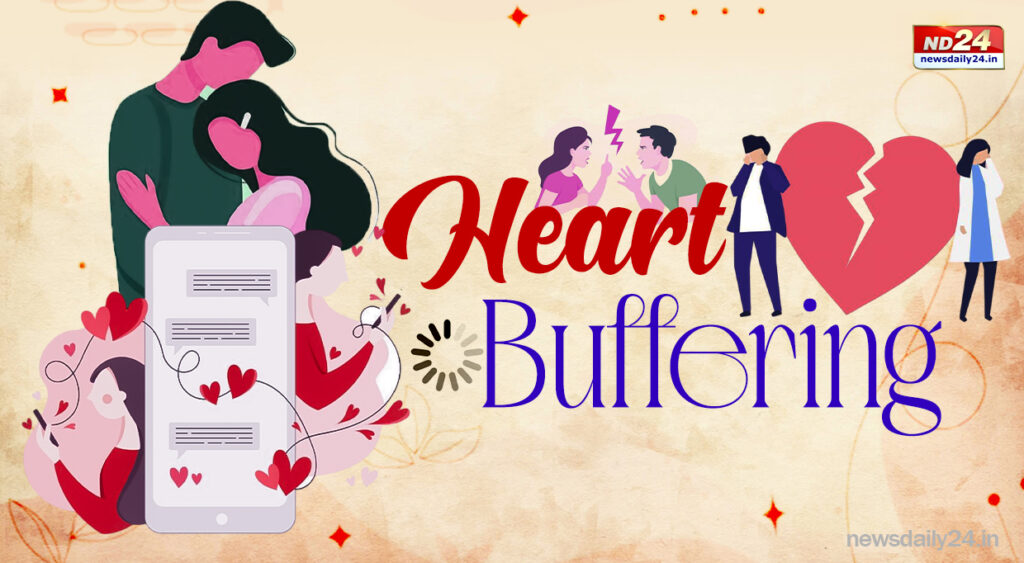Case 1: Priyanka (name changed), a school student from Guwahati, was once cheerful and ambitious, dreaming of a career in architecture. But lately, she’s withdrawn – avoiding friends, skipping meals, and obsessing over “quick diet” reels on Instagram. Her parents took her to a mental health specialist after noticing the change. Priyanka revealed she felt inadequate after a friend started dating someone. She began comparing herself constantly on social media, hoping to look more like her friend to feel worthy of love. Her self-esteem and mental health suffered deeply.
Case 2: Akash (name changed), a corporate employee in Guwahati, struggled with trust issues in his two-year relationship. Social media interactions – likes, comments, or posts – triggered anxiety and led to controlling behaviour. He demanded that his partner block people, and when she refused, the relationship ended. However, Akash continued stalking her online. His obsession began affecting his own mental well-being, prompting HR at his workplace to step in and refer him to a mental health expert. Social media had become both his trigger and outlet, fueling emotional instability.
Love today isn’t what it used to be. Over the past decade, the romantic landscape in India – especially in smaller towns and fast-growing cities like Guwahati – has changed dramatically. What was once shaped by dreamy movie romances is now defined by dating apps, social media reels, and the constant need for online validation.
Earlier, love was often one-sided—full of quiet longing, stolen glances, and handwritten letters. Many relationships lived only in the imagination. Today, it’s fast, direct, and always online. A single swipe can start or end a relationship. Young people scroll through dating profiles like shopping for clothes—choosing partners based on bios, photos, and vibe.
With this shift, the very language of love has evolved. Terms like ‘ghosting’, ‘situationships’, ‘toxic patterns’, ‘red flags’, ‘boundaries’, and ‘emotional triggers’ are now part of everyday conversation, especially among the younger generation. Much of this is influenced by content on social media, where relationship advice is packaged like entertainment and therapy talk has become mainstream.

According to Rohit Kumar Deka, a child psychologist based in Guwahati, this digital immersion has a significant influence on young minds. “It’s like having a TV in your living room – you can’t ignore it,” he says. “Teenagers often turn to social media for validation while still figuring themselves out emotionally. They follow trends they relate to, but this creates comparison, self-doubt, and low self-esteem. Many don’t really understand love or relationships…they just want someone to show off online. The fear of missing out is driving them.”
Deka believes that what passes for connection today is often just a digital illusion. “Young people use relationships to experiment with identity. Every connection becomes a space to try on different versions of themselves. But when there are endless options just a tap away, true commitment becomes harder to understand or to practice.” He adds that the intensity of early attraction is often confused with love. “What people call love is sometimes just infatuation or affection. They equate passion and excitement with depth, which are not the same.”
This emotional overload isn’t limited to teenagers. Dixeeta Garg, a counselling psychologist also based in Guwahati, observes that love today comes with performance pressure. “From designing the perfect dating profile to curating anniversary posts and reels, there’s a constant need to appear happy as a couple. Love has become something you perform online and not just something you feel.” Technology, she notes, has changed how people meet, interact, and even break up. “You’re no longer limited to people from your college, work or neighbourhood. But that also means you’re constantly thinking: ‘Can I find someone better?’ This makes satisfaction harder to achieve. Even in small towns, we’re seeing the shift. The innocence of romance has faded, replaced by a more practical, sometimes cynical, attitude.”

One of the biggest barriers to real connection today, Garg says, is vulnerability. “We live in a world obsessed with perfection. We want what others have. Everyone is posting their happiest moments, their best selfies. But real love is messy. It’s flawed and uncomfortable. Being vulnerable makes us feel exposed. The fear of rejection can feel like physical pain. So people build emotional walls and those walls block intimacy.” Despite the noise and pressure of online life, she insists the longing for genuine connection hasn’t changed. “We still want to be seen, understood, and loved deeply. But with filters and curated personas in the way, it feels harder than ever.”
Dr Shyamanta Das, Head of Psychiatry at Dhubri Medical College Hospital, echoes these thoughts. He believes that while the tools of love have changed, the emotion itself hasn’t. “Love remains the most powerful human emotion. But social media distorts our expectations. We forget that love includes flaws. Couples who last are the ones who grow from within. Love is not a PR activity…it’s deeply private and personal.”
Still, romantic anxiety in today’s hyperconnected world takes on new shapes. Instant messaging, ‘seen’ receipts, and the culture of fast replies often trigger anxious attachment. A delayed response can set off spirals of overthinking, fear, and rumination. In early romance, people often ignore red flags – emotional unavailability, mixed signals, or boundary violations – because the chemical highs of dopamine and oxytocin cloud judgment. Psychologists refer to this as cognitive dissonance: the mind’s way of trying to reconcile reality with the illusion it desperately wants to believe.

Healthy love, however, isn’t chaotic – it’s emotionally safe and grounded. “Listen to your intuition,” Garg says. “There’s no one-size-fits-all rule, but honest communication and clarity are essential. If your heart craves depth, honour that. Don’t settle just because you fear being alone. You can love deeply without losing yourself. Know that a thriving relationship makes space for individual growth.”
In a world of infinite options, modern love demands more than chemistry. It requires self-awareness, emotional maturity, and conscious choices. It’s about attunement – truly noticing and understanding another person’s inner world.
Yet not all relationships end gracefully. Increasingly, people turn to social media to shame former partners – posting offensive content in moments of rage or heartbreak. This doesn’t just harm the other person; it also delays healing.
Dr Das offers a quiet, powerful reminder: “If something isn’t working, let it go. Don’t drag yourself through pain you’ll regret. Exit with grace. Let the other person choose their happiness, and choose yours. Spend time with people who ground you. Go outside. Take care of your health. Life is still beautiful. And if you’re struggling emotionally, please seek support. Talk to an expert.”

Love has always been a little complicated, but now – with social media everywhere – it feels even more confusing. In today’s digital world, love isn’t just about being with someone. It’s also about figuring out who you are, how you want to be seen, and what you truly want. Romance feels easier to find now, but somehow, it also feels more fragile. With so many choices, so many filters, and so much pressure to look perfect, young people aren’t just falling in love – they’re also trying to find themselves.
What used to feel dreamy and magical has become more real and practical. But one thing hasn’t changed: deep down, we all want the same thing – to be truly seen, accepted, and loved for who we really are. And real love should never make you feel small. The best kind of love helps both people grow. It gives you the space to become who you’re meant to be, while still holding each other close through the changes.
In the end, the most important relationship is the one you have with yourself. When you know your worth and feel at peace inside, you’re able to love others in a healthier, deeper way. Because real love doesn’t come from trying to be perfect – it comes from being honest, open, and true to who you are. And that takes courage.







